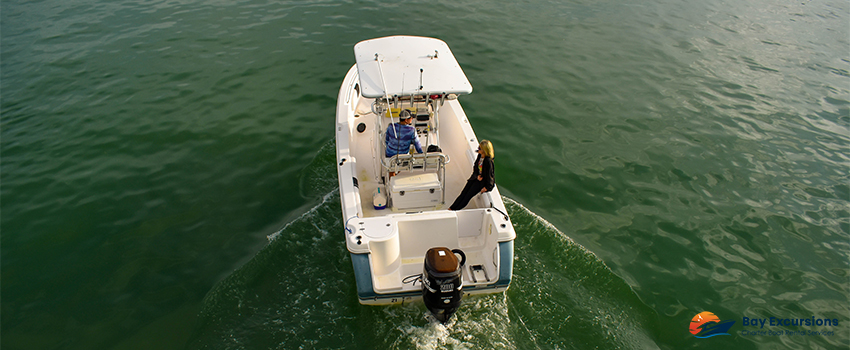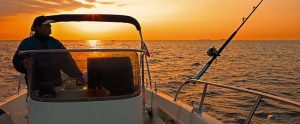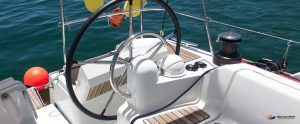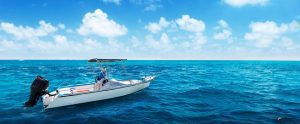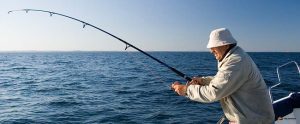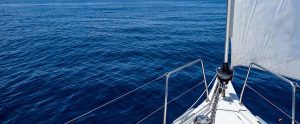Taking care of our waterways is crucial to preserving our environment. When it comes to large bodies of water, boaters are some of the wide-reaching beneficiary groups who enjoy the outdoors in a pristine environment.
As a boater, not only are you riding the waves to cruise or compete in water sports. You also hold the responsibility of respecting the environment and its inhabitants.
Being a responsible and eco-friendly boater demonstrates proper care of the world’s waterways and helps protect recreational boating areas. You also get to enjoy the water and keep it clean and long-lasting for generations to come.
To contribute to this cause, try these green boat practices during your boating trip:
1. Go Slow.
A lot of modern powerboats usually go at top speed for thrilling fun. However, doing this adds more to your carbon footprint than sailing at cruising speed.
The most efficient boat ride is when your vessel gets the highest miles per gallon (MPG). You do this by bringing your boat onto plane while gradually increasing the speed until MPG reaches its peak. Remember to use RPM and not MPH when establishing the most efficient cruise. Knowing how many RPM your engine turns at peak MPG determines the most efficient cruise.
Factors like current and wind can cause your boat to run at different speeds under various conditions. Maintain your speed by consistently setting your throttle to reach a specific number of RPM.
2. Do Your Maintenance on Land.
If possible, do as much maintenance on dry land. This helps keep the water clean and free from waste and runoffs containing fuel, grease, and cleaning products.
When towing your boat, perform maintenance before and after you are in the water. If you have to perform maintenance on water, choose cleaning products that are easy on the environment. You can also limit your waste by using vacuum sanders and tarps to collect debris, dust, and drips for proper disposal.
3. Don’t Fill Your Tank.
Fuel spills wreak havoc on the local marine ecosystem. When fueling your boat, be vigilant in monitoring tank levels, and keep an absorbent cloth with you for any possible instances of overflowing. Slowly fill your tank and leave it 10 percent empty to allow the fuel to expand without spilling when warming up.
Reducing the amount of fuel in your tank ensures the cleanliness of waterways, contributes to a better fuel economy, and lightens the load of your eco-friendly boats.
4. Have Your Engine Inspected, Tuned, and Maintained.
A well-maintained engine maximizes fuel efficiency. Otherwise, it will increase fuel usage while emitting unnecessary pollutants. Keeping your engine fine-tuned also saves you money, especially if you plan to go further at higher speeds per gallon of gas.
Be sure to have your boat’s propulsion system — including the fuel tanks and supply lines — inspected for any possible leaks as they age. If problems are spotted, have them fixed immediately. Also, make sure that your propeller is in good condition since bent blades could hamper the boat’s efficiency.
5. Reduce Harmful Discharges From Bottom Paints.
Heavy metal discharges found in antifouling paints are not safe for waters. To minimize these, use less toxic or nontoxic antifouling paint as the bottom paint. Some boats require cuprous oxide paints to be growth-free, while others use a slick film paint containing materials like Teflon. In some cases, paints with Econea are preferred over those with cuprous oxide.
If a “soft” ablative bottom paint was used on your boat, apply gentle underwater cleaning techniques on the hull to prevent you from scrubbing the paint off the boat and into the water. If your boat is small enough, it’s better to keep it on a lift, trailer, or dry storage so you don’t have to paint its bottom anymore.
6. Practice Proper Waste Disposal.
Proper waste disposal is one of the most common ways to help the environment. Keep your trash out of the water and contained in eco-friendly boats before disposing of them properly.
Dispose of hazardous wastes like batteries, oils, cleaners, paints, used brushes, and oil filters by dropping them off at local facilities like toxic waste collection sites.
7. Keep Invasive Species off Your Boat.
The risk of invasive species is widely common, which greatly affects a nation’s marine habitats. Because of this, it’s imperative to check your green boat and remove these species before getting your boat on the water.
While there might be people who can check your boat at launch, it’s best to do your part. One way you can do this is by flushing the motors, hosing the bilge, and spraying down the trailer and boat as you haul it out of the water.
Make sure to wash your boat thoroughly between trips. Let it dry for several days before relaunching it into another body of water. While you’re at it, make sure that all parts that could hold water, like the bilge, drain well.
8. Report Oil Spills Immediately.
Accidents can happen at any time, and when you encounter spilling or leaking fuel on the water, it’s crucial to follow protocol and report it immediately. If you cause a spill or witness another vessel leaking pollutants, call the National Response Center (NRC) at 1-800-424-8802.
The NRC is the communications center of the federal government. It is staffed with U.S. Coast Guard officers and marine science technicians 24 hours a day.
Go Green When Boating
Share your love for responsible boating with a green boat.
Bay Excursions holds the best private boat tours in John’s Pass, FL. We provide well-maintained and eco-friendly boats made with materials that are safe for the seas and their incredible marine life. For inquiries and bookings, call us today!
